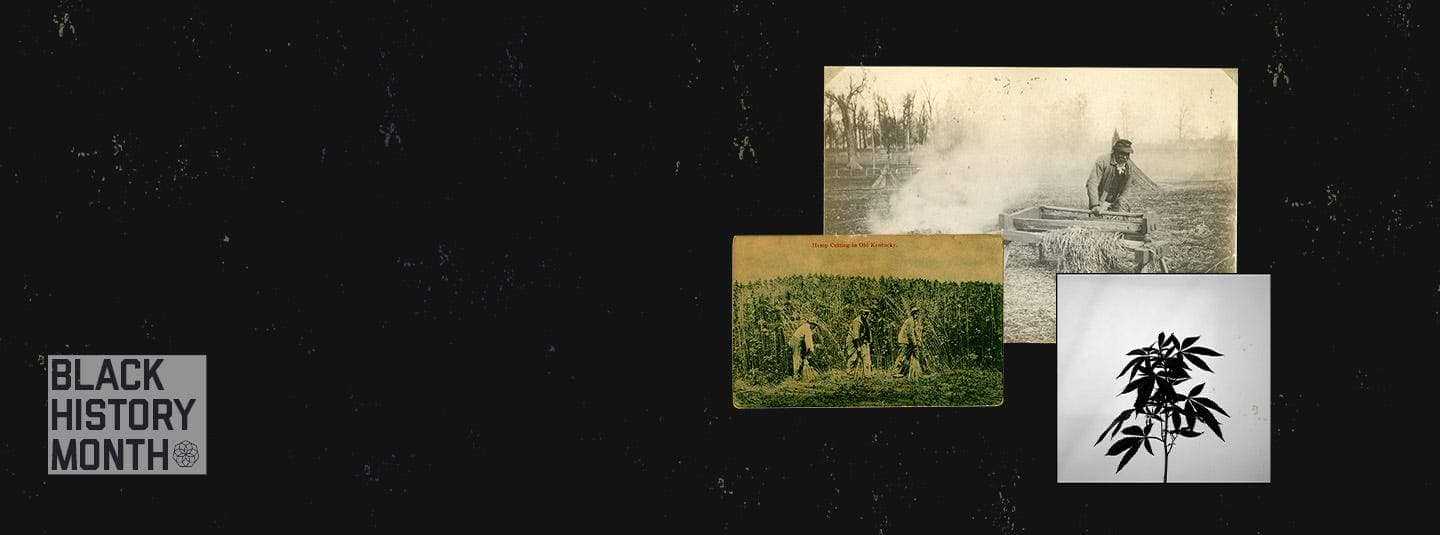A Conversation Honoring Black Hemp Farmers

You hear us talk about farmers often. They make this company what it is; our success rests on those who nurture and care for the plants from which we derive Charlotte’s Web products. But we haven’t often talked about the inequities between black and white cannabis farmers. And it’s about time.

Hemp in the Past
Hemp is a mighty plant with a strong, vibrant history dating back to the beginning of our nation. And as with most crops in our agrarian history, the more popular the crop, the more it was grown—on larger and larger fields—and the larger the fields, the more people needed to work the crops. And those people were slaves.

We do not mention slavery casually, on the contrary we are speaking intentionally about the intertwined history of hemp and those who farmed it. We want to honor those whose work brought this crop to prominence, and we acknowledge that it may not have been their choice. This plant provides a searing reminder of how slavery was an engine that propelled not only the birth and success of our country but also the spread of English colonialism, as the English Monarchy relied on hemp production in the colonies to sustain the British Navy with ropes and sails.

Hemp Today
And today? As it stands, cannabis farmers are overwhelmingly white, 96% in fact. According to the U.S. Department of Agriculture’s 2017 census, Black-owned farms constitute just 0.4% of total U.S. farmland. This dramatic decline is the result of multiple factors, including discriminatory policies, unequal access to federal farm subsidies and loans, and challenges in securing credit to invest in agricultural technology. These systemic barriers and institutionalized racism are well documented and have significantly hindered Black farmers' ability to own and operate land independently. This all makes for an industry in need of some accountability before it repeats a past that was designed to edge out black farmers.
So, what does Charlotte’s Web plan to do about it? We are currently working with several organizations on policy initiatives to help right the wrongs of the past and ensure a more just future. On a grassroots-level, we are partnering with black farmers, supporting their work, as well as using our platform to help amplify their voices.
On that note, we’d like to introduce you to a hemp cultivation expert and cannabis activist who is making history: Angela Dawson. A 4th-generation farmer specializing in regenerative farming practices, she established, and is the president of the Minnesota-based Forty Acre Co-op. This cooperative is the first nationwide black farmer co-op in the U.S. since the Reconstruction Era. Learn how Ms. Dawson is making a positive impact by righting the systemic inequities of the past.
As a B Corp, we’re evaluated on how we support our communities and the people in our ecosystem. Farmers are our people and now, as much as ever, black farmers deserve and need our support. While we look at the deep wounds of the past, we strive to help shape a just future. Inspired by leaders like Angela Dawson, we’re dedicated to fostering a movement for equity that cultivates real change. With every seed planted and policy challenged, we’re nurturing a future where justice and equity flourish.

